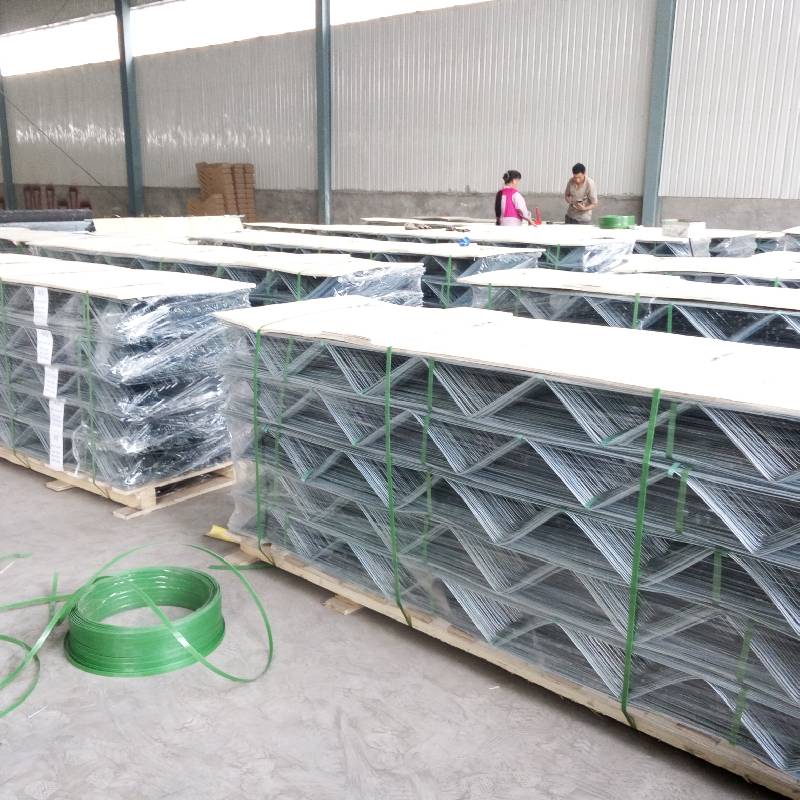
- Mobile Phone
- +8613931874955
- sales@cntcmetal.com
concrete wire mesh sizes
Understanding Concrete Wire Mesh Sizes A Comprehensive Guide
Concrete wire mesh is an essential component in the construction industry, primarily used for reinforcing concrete structures. Its primary function is to enhance the tensile strength of concrete, which is inherently strong in compression but weak in tension. Concrete wire mesh is made from low-carbon steel wires that are welded together in a grid formation. This article will explore the different sizes of concrete wire mesh, its applications, and considerations for selection.
Types of Wire Mesh Sizes
Concrete wire mesh is available in various sizes and gauges, depending on the structural requirements and the specific project needs. The most common standard sizes for concrete wire mesh include
1. Size Specifications Wire mesh is often designated by its gauge and the spacing between its wires. Common sizes include 6x6 inches (with wire gauges typically ranging from 10 to 6), 4x4 inches, and 2x2 inches. The numerals represent the spacing in inches, while the wire gauge denotes the thickness of the wire—smaller numbers indicate thicker wires.
2. Mesh Sheet Dimensions Standard sheets of wire mesh can vary in dimensions, such as 5x10 feet, 6x12 feet, or even larger. The choice of dimensions will depend on the scale of the project and how much surface area needs reinforcement.
Applications of Concrete Wire Mesh
Concrete wire mesh is widely used in many applications, including
- Slabs Used in floor slabs, driveway pavements, and exterior sidewalks, wire mesh supports the slab and prevents cracking caused by shrinkage. - Walls In concrete walls, wire mesh not only strengthens the structure but also helps to maintain structural integrity under load. - Pavements and Roads In industrial and commercial pavements, wire mesh is integral for load-bearing applications, providing enhanced load distribution.
concrete wire mesh sizes

Factors to Consider When Choosing Wire Mesh
When selecting the appropriate size of concrete wire mesh for a project, several factors come into play
1. Load Requirements Understanding the load that the concrete structure will need to support is critical. Heavier loads typically require thicker wire gauges and closer spacing, while lighter loads can accommodate thinner wires and wider spacing.
2. Environmental Conditions The presence of factors like moisture, chemicals, or freeze-thaw cycles can affect the type of wire mesh needed. In corrosive environments, consider galvanized wire mesh or alternative materials to enhance durability.
3. Installation Method Different installation methods may affect the choice of wire mesh size. Consider the ease of handling and the tools available for placement when selecting wire mesh.
4. Budget Costs can vary significantly based on the type of wire mesh and its dimensions. Understanding your budget constraints will help narrow down options.
Conclusion
Choosing the right concrete wire mesh size is crucial for the durability and performance of concrete structures. Awareness of the mesh sizes available, their applications, and the influencing factors will assist builders and contractors in making informed decisions. By adhering to specific guidelines and understanding the project requirements, stakeholders can ensure that their concrete reinforcements are effective and long-lasting. Whether working on residential, commercial, or industrial projects, concrete wire mesh plays a pivotal role in the overall integrity of construction work.
share:
-
Why Sacrificial Formwork Is Redefining Underground ConstructionNewsJun.06,2025
-
The Structural Dynamics of Modern Concrete: How Snake Spacers Revolutionize Flexible ReinforcementNewsJun.06,2025
-
Snake Spacers Smart-Lock Concrete Reinforcement with Surgical PrecisionNewsJun.06,2025
-
Snake Spacers: Reinforcement Precision for Modern Concrete ProjectsNewsJun.06,2025
-
Snake Spacers Powering Concrete's Structural DNANewsJun.06,2025
-
Slither into Success: Snake Spacers' Precision Bite for Unbreakable ReinforcementNewsJun.06,2025
-
Sacrificial Formwork: Building Stronger, Faster, and Safer StructuresNewsJun.06,2025



















